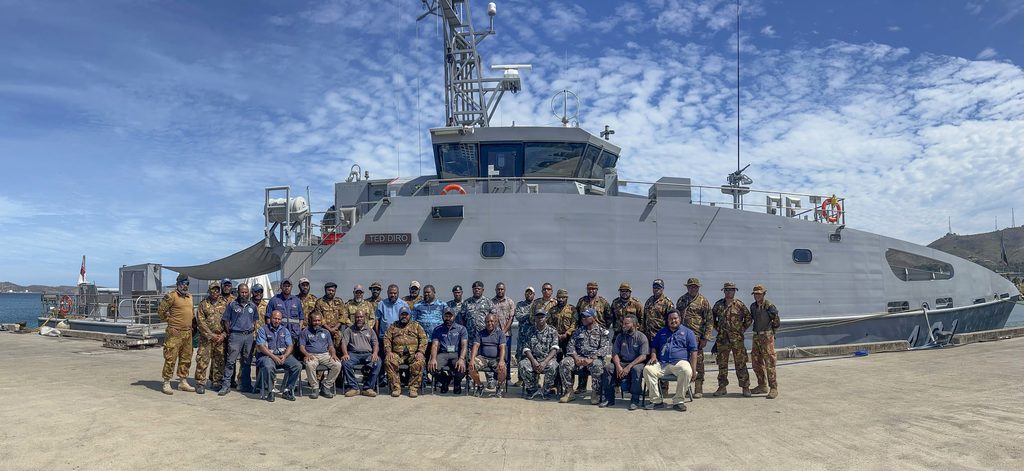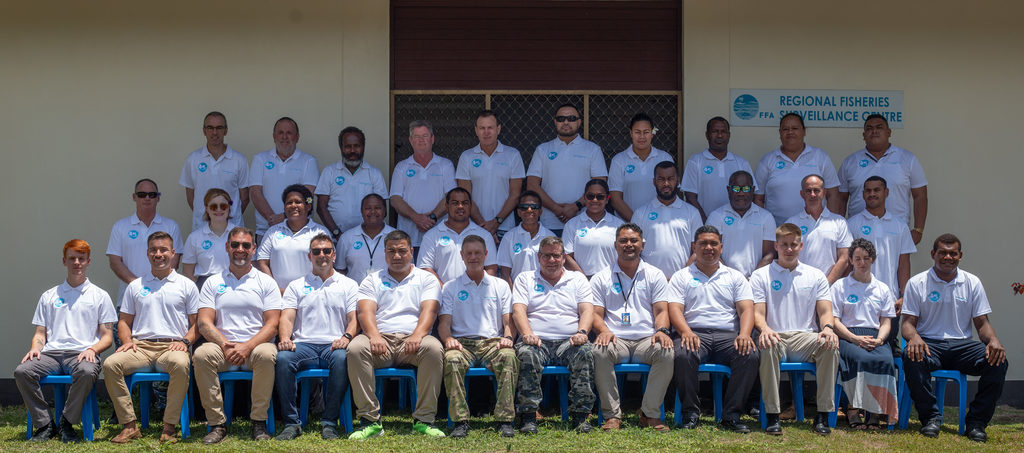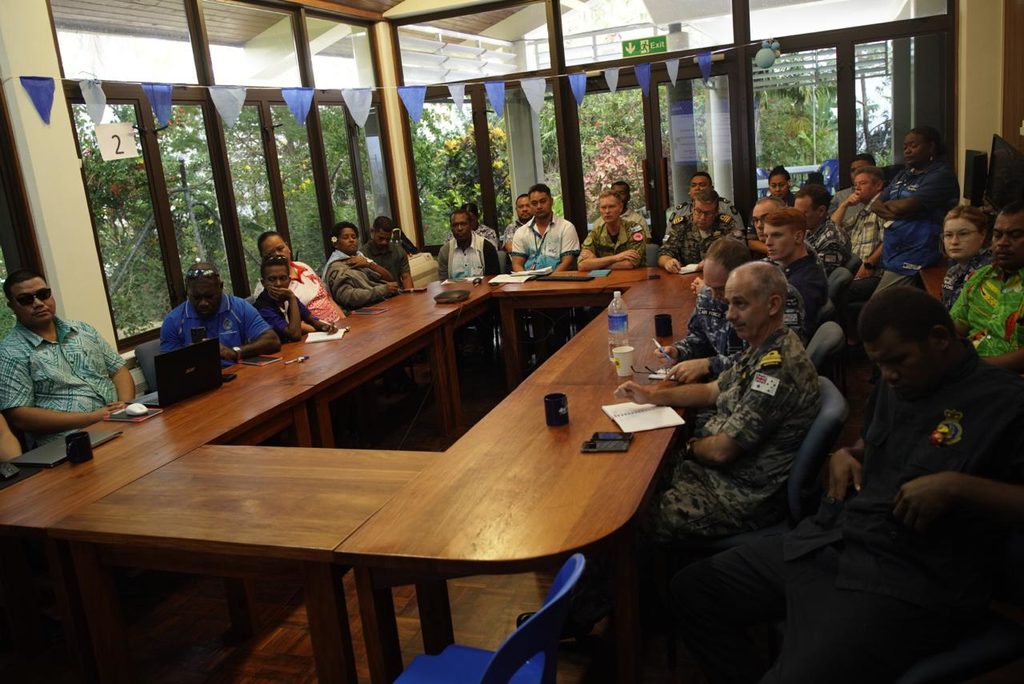Operation Kurukuru – a two-week comprehensive operation targeted at safeguarding the invaluable marine resources of Pacific Island nations in the Western Central Pacific Ocean – ended last Friday.
Strengthening the fight against illegal, unreported and unregulated (IUU) fishing were key outcomes of that operation to promote sustainable fisheries and enhancing maritime security across the Pacific.
According to the Pacific Islands Forum Fisheries Agency (FFA), Operation Kurukuru was conducted over an area of approximately 21.3 million square kilometres over a two-week period.
IUU fishing activities pose a significant threat to the economic stability and food security of Pacific Island nations, and undermined regional efforts toward sustainable fisheries management.
The FFA said the operation underscored the commitment from FFA and its members, the Pacific Quadrilateral Defence Coordination Group (Pacific QUADs) and partners to safeguard the invaluable marine resources of Pacific Island nations in the Western Central Pacific Ocean.
“This operation exemplifies the spirit of regional collaboration and determination among Pacific Island nations,” FFA director-general Dr Manu Tupou-Roosen said in a statement.
“By tackling IUU fishing head-on, we are not only preserving our marine resources but also securing the livelihoods and food security of our people.”
Dr Tupou-Roosen said Operation Kurukuru reinforced the FFA’s commitment to sustainable fisheries management in the Pacific.
Operation Kurukuru was conducted in the combined area of the 15 participating members’ exclusive economic zones (EEZ) and the adjacent high seas pocket.
Those members include Fiji, Australia, Cook Islands, Federated States of Micronesia, Kiribati, Nauru, Niue, Palau, Papua New Guinea, Nauru, New Zealand, Republic of Marhsall Islands, Solomon Islands, Tuvalu and Vanuatu; alongside assets and personnel from the Pacific QUADs – Australia, France, NZ and US.
The operation emphasised on boarding activities at sea and in port, cooperative surveillance engagements, the utilisation of remote sensing data to drive intelligence-led operations, and the use of all available Maritime Domain Awareness (MDA) tools to provide timely and effective MDA information to members.
The key objectives Operational Kurukuru included:
n enhancing surveillance and enforcement: FFA members in cooperation with the Pacific QUADs intensified surveillance efforts to detect IUU fishing vessels. This included aerial and maritime patrols, and use of cutting-edge technology to monitor fishing activities in the region;
n strengthening regional cooperation: Operation Kurukuru encouraged information sharing and collaboration among Pacific Island nations, fostering a united front against IUU fishing. By working together, members and partners aim to increase the effectiveness of surveillance and enforcement efforts;
n capacity building: the operation focused on building the capacity of FFA members and partners to enforce fisheries regulations effectively. This includes training programs, workshops, access and use of technology platforms, sharing of best practices in monitoring, surveillance and maritime security;
n promoting sustainable fisheries management: Operation Kurukuru aligned with the broader goal of ensuring the long-term sustainability of fisheries resources in the Pacific region. By combating IUU fishing, FFA members can protect their marine ecosystems and support responsible fishing practices
The FFA reported more than 196 vessel contacts during the operation using air, surface and remote-sensing platforms.
Of that, there were 89 boardings at sea and in port.
More than 2000 detections were picked up on satellite scans, it said.
“As part of the outcome of MDA analysis and inspections, there were eight vessels of interest (VOI) detected and reported to members for further investigation,” the FFA said.
“The potential infringements relate to non-compliance with national legislation and WCPFC (Western and Central Pacific Fisheries Commission) conservation management measures.”
The FFA-coordinated operation included 21 seconded officers within the Regional Fisheries Surveillance Centre (RFSC) from Australia, Fiji, Nauru, New Zealand, Solomon Islands, Tonga and Vanuatu.
It stated the RFSC delivered a one-week pre-operational training in collaboration with partners including US Coast Guard, the Canadian Government Dark Vessel Detection Satellite system, the Western and Central Pacific Fisheries Commission, SPC Fisheries, the Joint Analytical Cell (JAC) and the International MCS Network.
The FFA RFSC coordinated intelligence to support all national headquarters, and inform aerial and surface deployments, including the use of remote sensing technology to identify potential dark targets and effort data to inform vessel reporting analysis and risk assessments, the FFA said.
The FFA is a regional body that assists its 17 member-countries to sustainably management fisheries resources that fall within their 200-mile EEZ.
It provides expertise, technical assistance and other support to its member-countries that make decisions about their tuna resources and participate in regional decision making on tuna management.
On Friday, October 25 (2024), the FFA held the ground-breaking ceremony for its US$7.1million (approx. FJ$16m) building complex that will house its Regional Fisheries Surveillance Centre (RFSC) next year.
Construction of the state-of-the-art facility – designed to enhance maritime surveillance and regional cooperation among FFA’s members – will start next year and expected to be completed in the next two years.
PNG Defence Force participated in Operation Kurukuru. The operation involved 15 FFA members with the support of the Pacific QUADs. Picture: FFA MEDIA

Members of Operation Kurukuru at the FFA Regional Fisheries Surveillance Centre. Picture: FFA MEDIA



